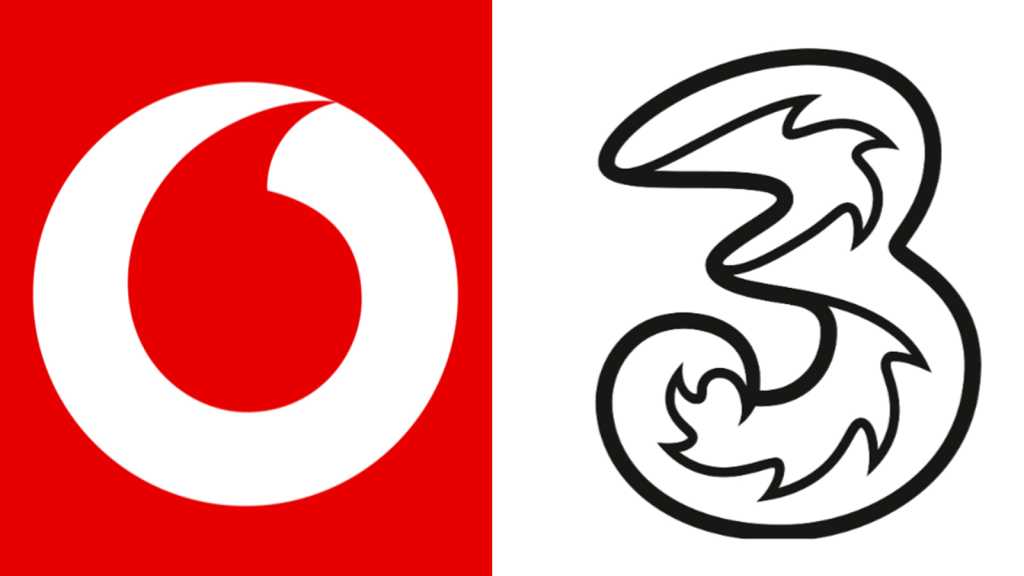When choosing a SIM-only deal or buying a phone on contract, it might look like there are loads of different networks in the UK.
However, many of these are so-called ‘piggyback’ providers, or Mobile Virtual Networks (MVNOs). They pay to use the networks of one of the ‘big four’ companies – EE, O2, Vodafone and Three – while still offering their own unique plans and perks.
But what if that were to go down to just three? That’s what’s set to happen soon, with a proposed merger between Vodafone and Three UK owners CK Hutchison approved by the UK government regulator.
So, what does this mean for you as a current or potential future customer? Here’s everything you need to know.
Will Vodafone and Three definitely merge?
Almost certainly. The big hurdle for the merger to overcome was approval by the regular, the UK’s Competition and Markets Authority (CMA).
It was officially cleared on 5 December 2024, albeit “subject to legally binding commitments”. Both companies have agreed to certain conditions which must be upheld in order for the deal to go through.
Once it does, Vodafone will own 51% equity, while CK Hutchison (Three UK owners) will own 49%.
Assuming the merger goes through, it will mirror the situation in the US, where T-Mobile and Sprint merged in 2020 to join Verizon and AT&T as the only networks.
When will Vodafone and Three merge?
In official press releases, Vodafone and CK Hutchison say “the merger is expected to formally complete during the first half of 2025”. That could be any time between January and June 2025.
Why are Vodafone and Three merging?
On the official website announcing the agreement, Vodafone and Three highlighted three key ambitions of the merger: “build one of Europe’s leading 5G networks, transform the customer experience, and give better choice and value for mobile and broadband customers across the UK”.
For customers, the companies have six main goals.
- A ‘better’ home broadband network for the same price
- Home broadband at many different price points
- A wider range of home broadband plans
- Average 5G speeds up to 6x faster over the next 10 years
- 5G coverage in more than 95% of places where people live and work over the next 10 years
- 2.5x 5G network capacity over the next 10 years
Once the merger was approved, Vodafone and Three revealed that they would invest £11 billion in their combined 5G network, which will supposedly have 99% UK coverage and improve quality, reliability and capacity.
What will happen if I’m a Vodafone or Three customer?
Until the merger is formally completed, nothing.
In the short term, the CMA has set out key conditions which it and Ofcom (the UK’s communications regulator) will oversee. They include a “joint network plan, which sets out the network upgrade, integration and improvements Vodafone and Three will make to their combined network across the UK over the next 8 years”
For new and existing customers of Vodafone or Three, the most significant news is that “specific mobile tariffs” must be capped for three years, ensuring most people can avoid any short-term price rises.
However, Vodafone’s official press release reveals that if certain conditions are met three years after completion “Vodafone may acquire Hutchison’s 49% stake via a Put and Call option”.
This would require both parties to come to a legally binding financial agreement, but could mean the newly-merged network gets rebranded back to simply ‘Vodafone. It’s unclear how this may affect customers.
What will happen if I’m with a virtual network which uses Vodafone or Three?
Of course, it’s not just Vodafone and Three customers that will be affected by the merger.
There are plenty of Mobile Virtual Network Operators (MVNOs) in the UK, which pay to use the infrastructure from one of the main operators rather than owning it themselves. As a result, their contracts and SIM-only plans are often very competitively priced.
MVNOs using Vodafone are:
- Voxi
- Asda Mobile
- Lebara Mobile
- Talkmobile
The following use Three:
- iD Mobile
- Smarty
- Honest Mobile
- Superdrug
As outlined by the CMA, a legally binding commitment of the merger is for prices and contract terms for wholesale services (which MVNOs purchase from networks) to be pre-set for three years. This means prices should stay as competitive as they have been until 2028.
It’s unclear what the situation will look like after that, but Vodafone suggests that its network sharing agreement with Virgin Media O2 (outlined below) will also benefit MVNOs.
How does the Vodafone-Three merger affect EE and O2?
Aside from one fewer competitor, the merger might not appear to affect the two other main networks in the UK.
And while that looks to be the case for BT-owned EE, O2 (officially Virgin Media O2) has entered into an agreement with Vodafone to share networks. As part of the deal, the quality of mobile coverage for customers of both parties should be improved.


